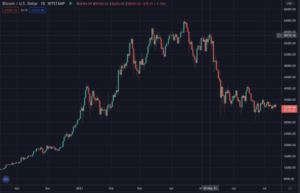
For most casual streamers, the dream is to gain followers and most eventually monetize your channel in a way that lets you do it as an actual job. That’s very different from esports however, where the ultimate goal is to be a member of a successful professional team.
These two goals have butted heads on a number of occasions though, with some players completely rejecting the option to stream and others quitting at the top of the esports game in order to go all-in on Twitch. So why is it that some pros are stepping back to pursue influencer status instead? And what does it mean for the long-term future of esports as an industry?
Bonus prize money, but physical and mental toll
Like any sport, esports players get into it because they love it and because they can make money. But pro gaming isn’t any different from pro football or basketball. When you go pro, the game gets harder and the stakes get higher.
As a professional, players must dedicate most of their time and energy to training, which is exhausting both physically and mentally. Sure, you can take a break to find an online casino bonus and claim it here, but players often practice over 10 hours a day, every day.
Not only that, but esports practice can be very isolating. Unlike other sports where training takes place with the whole team, esports players can be stuck alone in a room for hours on end instead. Bearing in mind that many of these pros are very young, with some even quitting high school to join, it’s not hard to see why a player could burn out very quickly.
Streaming is more sustainable
Having a successful stream doesn’t bring riches to all that many, but it could be much better in the long run. Most esports organizations are driven by content creators they sponsor rather than esports teams. This gives streamers a reliable source of income and can help them reach a wider audience, in a mutually beneficial partnership.
Streamers have more control over what they do and don’t have to deal with teammates. With more esports organizations starting to diversify towards being a network of social media channels rather than a sports franchise, there are certainly going to be more opportunities for streamers than esports pros.
It may well be that investing in streaming is more sustainable for organizations, as well as for individuals. It’s no secret that player salaries have ballooned to unsustainable levels over recent years across multiple games, with Counter-Strike and Dota 2 teams often being a money-losing endeavor.
This isn’t to say that streaming is easy, however. As with esports players, streaming is a non-stop grind and it’s been demonstrated that Twitch brutally punishes streamers who take a break for any reason and rewards those who spend unhealthy amounts of time in front of the camera. Though being a full-time streamer is the dream for many, it’s also a very difficult pursuit in its own right.
Source: https://win.gg/news/8929/leagues-versus-streamers-what’s-the-future-for-esports
- All
- audience
- Basketball
- Casino
- channels
- content
- day
- deal
- driven
- energy
- esports
- Football
- Franchise
- future
- game
- Games
- gaming
- Goals
- High
- HTTPS
- Income
- industry
- influencer
- investing
- IT
- Job
- join
- Long
- love
- Media
- money
- network
- online
- opportunities
- Option
- order
- Other
- Others
- Partnership
- physical
- player
- Pro
- Rewards
- salaries
- School
- So
- Social
- social media
- spend
- sponsor
- Sport
- Sports
- Status
- streaming
- successful
- sustainable
- The Future
- time
- top
- Training
- Twitch
- Versus
- WHO
- win
- years

